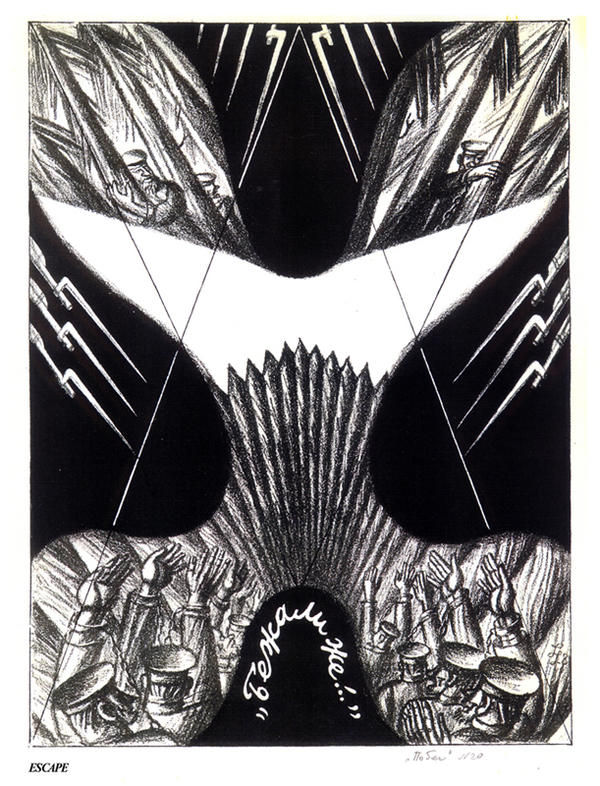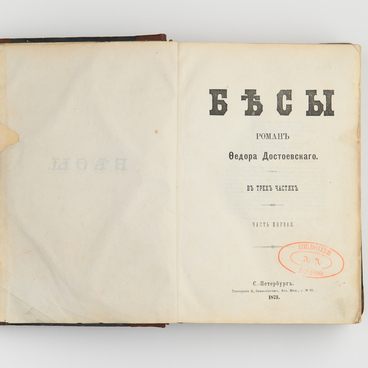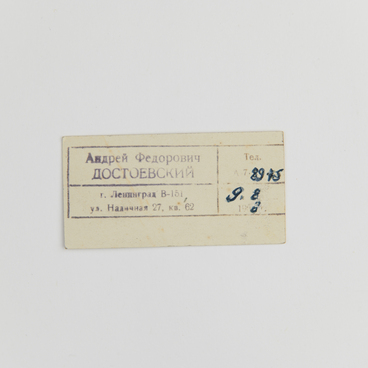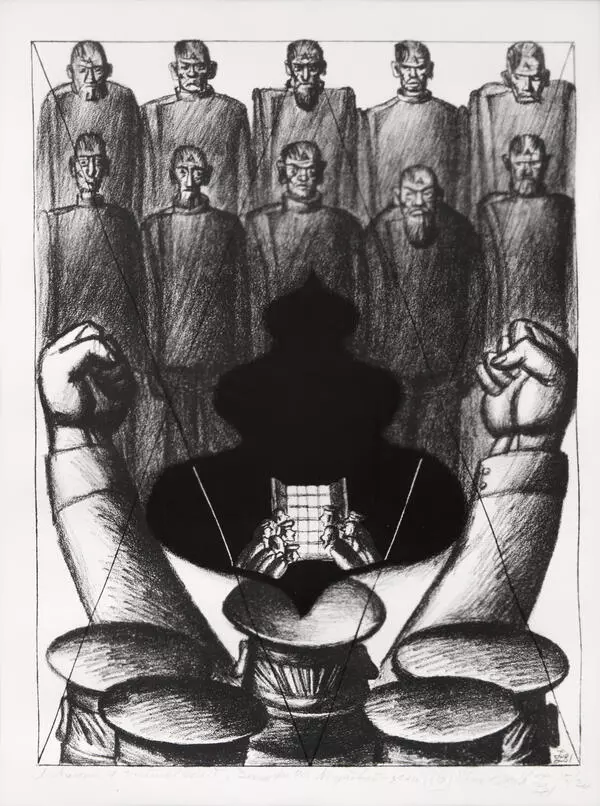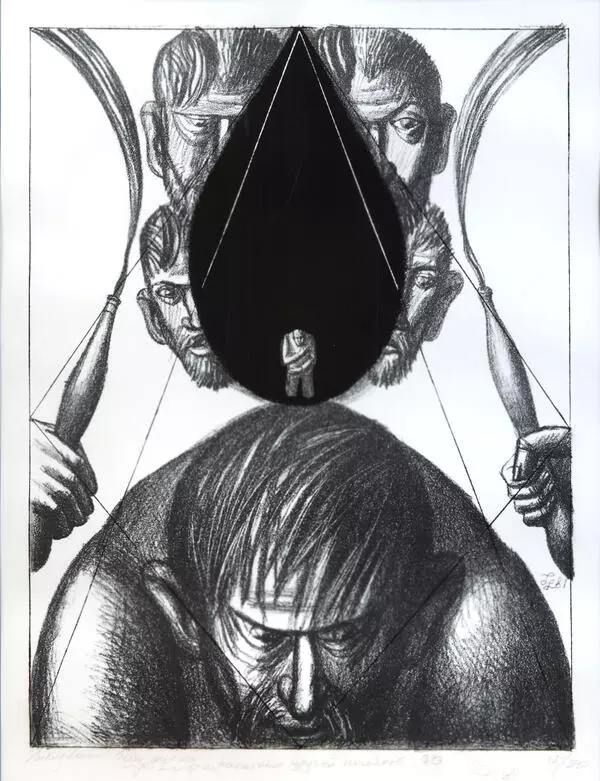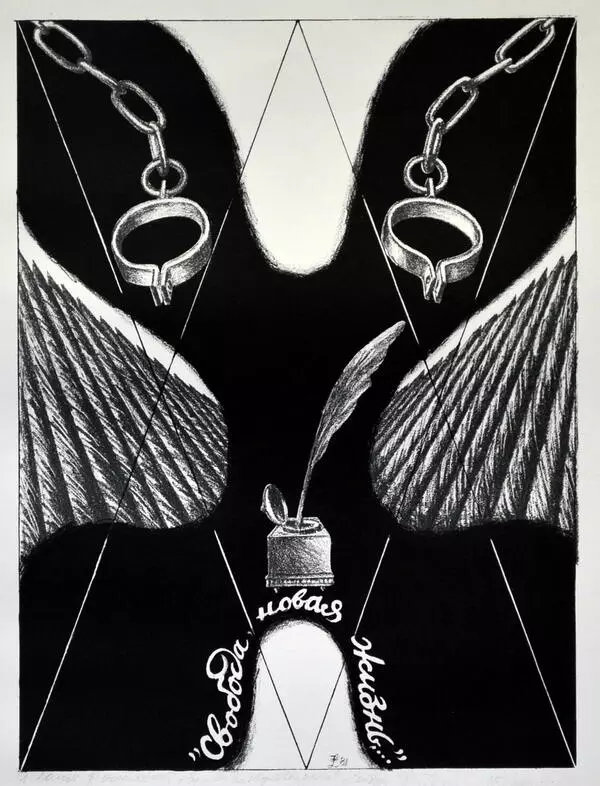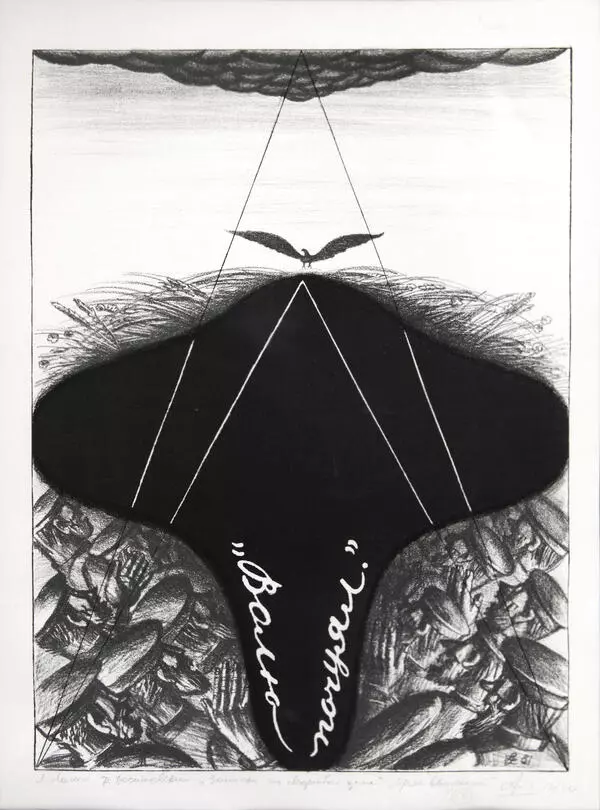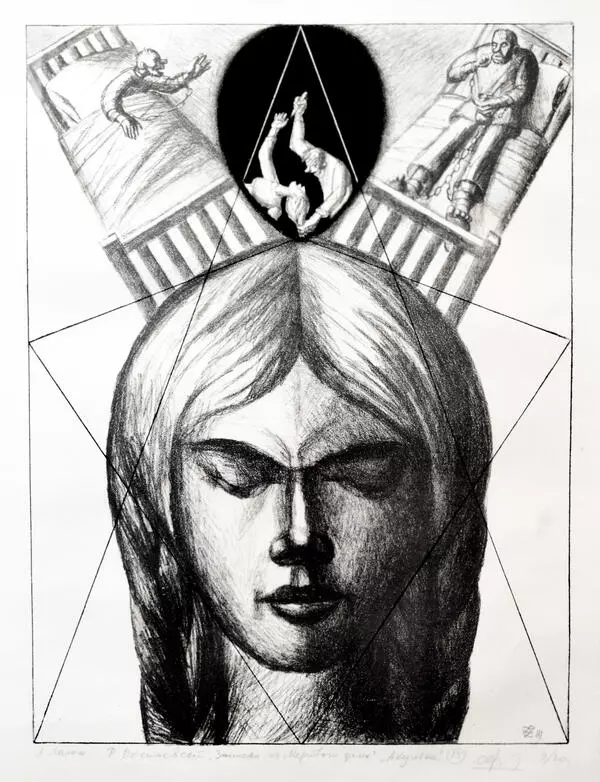Autolithograph by LeonId Lamm ‘Escape’ is part of a series of illustrations for Fyodor Dostoevsky’s novel “Memoirs from the House of the Dead”.
Lithography superseded printmaking. Using specific ink, the artist creates an image that is then pressed onto the surface of a limestone plate. The stone is treated with a mixture and used as a printing pattern for images.
In the mid-bottom of the autolithograph, there is a handwritten sign “Escaped…” According to the plot, several convicts attempted to escape but were caught up and punished severely. However, this news was met with fervor. The convicts said, “Can”t get away from here, eh? That”s their notion, is it? Just look at those chaps! ”
Here is how the episode is shown in the novel, “<…> they heard the tremendous news, which spread rapidly from man to man; all received it with deep, though secret satisfaction. Their emotion was as natural as it was great. The affair broke the monotony of their lives, and gave them something to think of; but, above all, it was an escape, and as such, something to sympathize with deeply, and stirred fibers in the poor fellows which had long been without any exciting stimulus; something like hope and a disposition to confront their fate set their hearts beating, for the incident seemed to show that their hard lot was not hopelessly unchangeable. “Well, you see they”ve escaped in spite of them! Why shouldn”t we? ” The thought came into every man’s mind, and made him stiffen his back and look at his neighbors in a defiant sort of way. All the convicts seemed to grow an inch taller on the strength of it, and to look down a bit upon the sub-officers. The heads of the place soon came running up, as you may imagine. The Governor now arrived in person. We fellows looked at them all with some assurance, with a touch of contempt, and with a very set expression of face, as though to say: ‘Well, you there? We can get out of your clutches when we”ve a mind to.’ All the men were quite sure there would be a general searching of everything and everybody; so everything that was at all contraband was carefully hidden; for the authorities would want to show that precious wisdom of theirs which may be reckoned on after the event. The expectation was verified; there was a mighty turning of everything upside down and topsy-turvy, a general rummage, with the discovery of exactly nothing, as they might have known. When the time came for going out to work after dinner the usual escorts were doubled. When night came, the officers and sub-officers on service came pouncing on us at every moment to see if we were off our guard, and if anything could be got out of us; the lists were gone over once more than the usual number of times, which extra mustering only gave more trouble for nothing; we were hunted out of the court-yard that our names might be gone through again. Then, when in barrack, they reckoned us up another time, as if they never could be done with the exercise’.
Lithography superseded printmaking. Using specific ink, the artist creates an image that is then pressed onto the surface of a limestone plate. The stone is treated with a mixture and used as a printing pattern for images.
In the mid-bottom of the autolithograph, there is a handwritten sign “Escaped…” According to the plot, several convicts attempted to escape but were caught up and punished severely. However, this news was met with fervor. The convicts said, “Can”t get away from here, eh? That”s their notion, is it? Just look at those chaps! ”
Here is how the episode is shown in the novel, “<…> they heard the tremendous news, which spread rapidly from man to man; all received it with deep, though secret satisfaction. Their emotion was as natural as it was great. The affair broke the monotony of their lives, and gave them something to think of; but, above all, it was an escape, and as such, something to sympathize with deeply, and stirred fibers in the poor fellows which had long been without any exciting stimulus; something like hope and a disposition to confront their fate set their hearts beating, for the incident seemed to show that their hard lot was not hopelessly unchangeable. “Well, you see they”ve escaped in spite of them! Why shouldn”t we? ” The thought came into every man’s mind, and made him stiffen his back and look at his neighbors in a defiant sort of way. All the convicts seemed to grow an inch taller on the strength of it, and to look down a bit upon the sub-officers. The heads of the place soon came running up, as you may imagine. The Governor now arrived in person. We fellows looked at them all with some assurance, with a touch of contempt, and with a very set expression of face, as though to say: ‘Well, you there? We can get out of your clutches when we”ve a mind to.’ All the men were quite sure there would be a general searching of everything and everybody; so everything that was at all contraband was carefully hidden; for the authorities would want to show that precious wisdom of theirs which may be reckoned on after the event. The expectation was verified; there was a mighty turning of everything upside down and topsy-turvy, a general rummage, with the discovery of exactly nothing, as they might have known. When the time came for going out to work after dinner the usual escorts were doubled. When night came, the officers and sub-officers on service came pouncing on us at every moment to see if we were off our guard, and if anything could be got out of us; the lists were gone over once more than the usual number of times, which extra mustering only gave more trouble for nothing; we were hunted out of the court-yard that our names might be gone through again. Then, when in barrack, they reckoned us up another time, as if they never could be done with the exercise’.
